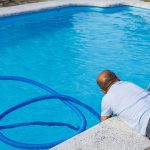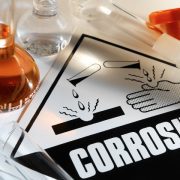
Pool Pumps: Lifespan and Signs It’s Time for a Replacement
How to know when your pool pump has reached the end of its life
Pool pumps play a crucial role in maintaining the cleanliness and overall health of your swimming pool. They circulate water through the filter, ensuring that debris and contaminants are removed, and the water remains crystal clear. Like any other piece of equipment, pool pumps have a limited lifespan and will eventually need to be replaced. In this article, we’ll discuss the average lifespan of a pool pump and the signs that indicate it’s time for a replacement.
Average Lifespan of Pool Pumps
The average lifespan of a pool pump depends on various factors, including the quality of the pump, how well it’s maintained, and how often it’s used. On average, a high-quality pool pump can last between 8 to 12 years with proper care and maintenance. However, some pumps may need to be replaced sooner due to heavy use or poor maintenance.
Signs That It’s Time to Replace Your Pool Pump
- Frequent Loss of Prime
If your pool pump is consistently losing prime, or the ability to maintain a vacuum, it may be time for a replacement. Loss of prime can be caused by several factors, such as a clogged impeller or a leak in the suction line. However, if the problem persists even after addressing these issues, it could be a sign of a failing pool pump.
- Increased Energy Consumption
As a pool pump ages, its efficiency can decrease, resulting in higher energy consumption. If you notice a sudden spike in your energy bill, it might be due to an aging pool pump that’s working harder to maintain proper water circulation. Replacing your old pump with a new, energy-efficient model can help you save on energy costs in the long run.
- Excessive Noise
Pool pumps naturally produce some noise during operation, but if your pump starts to make loud, unusual noises, it could be a sign of a problem. Grinding or screeching sounds can indicate a worn bearing or a failing motor, both of which are signs that it’s time to consider a replacement.
- Leaking Water
If you notice water leaking around the pool pump, it may be a sign that the pump’s seals or gaskets have worn out. In some cases, these components can be replaced, but if the pump continues to leak or if the damage is extensive, it’s more cost-effective to replace the entire pump.
- Decreased Water Flow
A decrease in water flow can be a sign that your pool pump is struggling to maintain proper circulation. This can result from a clogged filter or impeller, but if the issue persists even after cleaning these components, it may be time for a new pump.
- Visible Signs of Wear and Tear
Inspect your pool pump regularly for visible signs of wear and tear, such as rust, corrosion, or cracks in the housing. These issues can lead to reduced efficiency and potential leaks, and they’re often a sign that the pump is reaching the end of its lifespan.
Conclusion
Regular maintenance and proper care can help extend the life of your pool pump, but eventually, it will need to be replaced. Keep an eye out for the signs mentioned above and consult with a pool professional if you suspect your pump may be nearing the end of its life. Replacing your pool pump with a newer, more energy-efficient model will not only save you money on energy costs but also ensure that your pool remains clean and enjoyable for years to come.
???? Recommended Products
Based on the topics covered in this article, here are our top product picks to help you maintain a healthy, sparkling pool:
- Dolphin Nautilus CC Plus Robotic Pool Cleaner (~$800) — Top-rated robotic cleaner with CleverClean technology — scrubs walls, waterline, and floor with zero effort from you.
- Pentair SuperFlo VS Variable Speed Pool Pump (~$850) — Energy Star certified variable speed pump — can save up to 80% on energy costs vs. single-speed pumps.
- Taylor K-2006 Complete Pool Water Test Kit (~$90) — The gold standard for pool water testing — measures chlorine, pH, alkalinity, calcium hardness, and CYA with laboratory-grade accuracy.
- Lalapool 18-Inch Nylon Pool Brush (~$14) — Wide 18-inch brush head with durable nylon bristles — safe for all pool surfaces including vinyl and fiberglass.
- Stargoods Pool Skimmer Net (Heavy Duty) (~$17) — Fine-mesh skimmer net catches even small debris — reinforced frame won’t bend or break.
- U.S. Pool Supply Telescopic Pole (8-16 ft) (~$35) — Professional-grade adjustable telescopic pole — works with brushes, nets, and vacuum heads.
As an Amazon Associate, we earn from qualifying purchases. Prices are approximate and may vary.




